Inside: Honey, that sticky sweet liquid made by busy bees is chock full of vitamins, minerals, and pure goodness. It’s used to fight certain diseases, suppress a cough, heal a wound, bury the dead and more. With over 300 varieties available, here are 22 benefits of honey.
Benefits of Honey
Did you know all the benefits of honey? Do you know that honey is considered a very healthy food? The reason is simple…honey is loaded with vitamins, minerals, enzymes (which are important for digestion), antioxidants, flavonoids and more.
Flavonoids are phytochemicals and give fruits and vegetables their beautiful colors. They also protect the plants against disease and when we eat those foods, our bodies reap the benefits from these nutrients.
Antioxidants protect us against free radicals in our bodies. Honey has both flavonoids and phytochemicals. But that’s just the beginning of why honey is so good for kids.
Interesting Facts About Honey
Here are four fun facts about honey:
- Honey has been around for thousands of years. In fact, it’s as old as the honeybee!
- Beekeeping has been practiced since 700 B.C.
- Many early civilizations used honey for medicinal purposes and slathered the sticky stuff on their wounds to help speed up the healing process.
- Supposedly the body of Alexander the Great was embalmed with honey and because this “liquid gold” was fairly scarce, only the wealthy had access to it.
But, a fascinating aspect of honey is how it’s produced…thank you, honey bees!
Benefits of Honey: The Story of the Honeybee
When you purchase honey, do you ever stop to think how much time and effort those thousands of bees worked to create such amazing food?
Here are some basic facts about the amazing honeybee and how they produce honey:
A beehive usually consists of between 20,000-60,000 bees. These busy-bee workers pollinate, gather nectar, and return to the hive where they regurgitate the nectar into another bee’s mouth. This process is repeated until the nectar is put into a honeycomb.
At this point, the nectar is mostly a liquid so the bees use their wings to “fan” the honey, which causes the water to evaporate.
Eventually, the bees seal the honeycomb with a liquid from its’ stomach and it hardens into beeswax. Now, the bee has something to eat for the winter months!
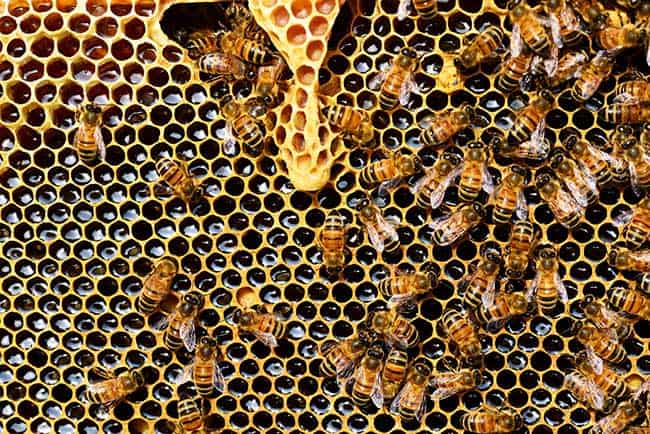
A beehive is made up of 20,000-60,000 bees. The bees work as a team to pollinate flowers, bring the nectar back to the hive where it eventually becomes the sticky stuff we know as honey
This is just half the story. Bees literally travel all over to gather nectar from flowers. In fact, they travel the equivalent of two times around the world for this sweet substance. And they do it in their short lifespan of a few weeks to four months.
At the end of its life, the bee’s contribution to the hive is one-twelfth of a teaspoon of honey!
But every bit that every bee gives is important because collectively the bees produce about 60 pounds of honey in a year.
Bees are an amazing example of the power of team players. Each contribution is necessary and needed to sustain the hive throughout the year.
The next time you purchase a bottle of honey, take a good look at this liquid gold and reflect on the sacrifice of the thousands of bees that went into making this for you. This substance (basically regurgitated from a bee’s stomach) has incredible benefits. Here are a few:
Benefits of Honey: 5 Reasons Honey is Good for Kids & Adults
Before launching into the benefits of honey, here are two things to remember:
First, do NOT give honey to children one year of age or younger. Why? Because honey can have a bacteria called Clostridium botulism which can cause infant botulism. And, it can be fatal.
Second, before giving honey to your child, check for a pollen allergy. Raw honey usually contains traces of pollen and may cause issues with your child’s digestive system. It doesn’t happen often, but there is still a possibility.
Now, for the benefits:
#1: Helps to Heal Wounds Quickly:
Since ancient times, honey has helped heal wounds. Two reasons: honey has an anti-inflammatory action which brings down the swelling of the wound and it has an anti-microbial activity that kills germs and clears the infection.
Today, honey producers in New Zealand and Australia have honey tested in laboratories to gather samples with the highest germ-killing activity. These kinds of honey are labeled ‘antiseptic” and sold to customers.
#2: Honey is Good for Your Teeth
Researchers in New Zealand found that
- Unprocessed (raw) honey protects against tooth decay
- It reduces the amount of acid produced by bacteria in the mouth responsible for dental decay to almost zero
- Unprocessed honey contains an enzyme that produces hydrogen peroxide which can fight periodontal disease and gingivitis (both inflammatory conditions due to infected gums)
- It fights infections of the gum and reduces swelling and pain very quickly
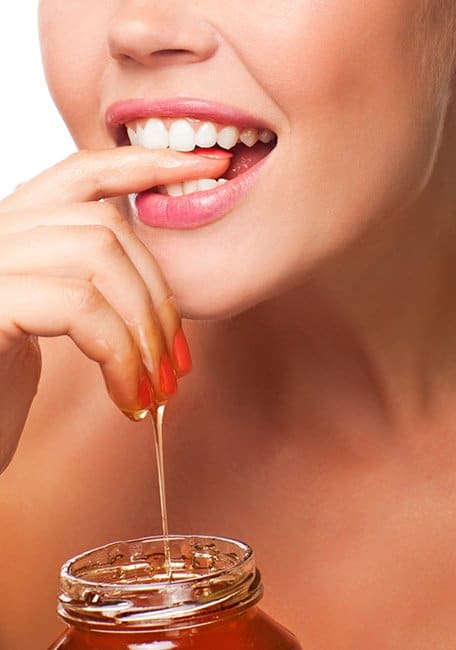
Raw honey helps prevent tooth decay because it lowers the amount of acid in the mouth responsible for tooth decay.
#3: Honey is Good for Young Children With Coughs
When your child gets a runny nose or a bad cough…what do you do? Run to the medicine cabinet? Here’s a better solution:
- Mix together 1 tablespoon of warm honey and a dash of cinnamon powder
- Give the mixture to your child 2x/day until the symptoms have vanished.
- Give one of the doses at night for a restful night’s sleep
Why does it work? Again, honey kills viruses (antiviral), kills bacteria (antibacterial) and is high in antioxidants that help fight infection.
#4: Energy without the Caffeine
We all know how a soda or cup of coffee perks us up and gives us energy. However, there’s a healthier solution for energy…honey.
Kids also need sustained focused energy, so try this with them, too. (especially when they’ve been playing too many video games).
Ditch the sodas and coffee and give everyone 1 tablespoon of honey each day. Raw honey is the best and Manuka honey is even more amazing (see below). Every tablespoon of honey provides
- 17 grams of high-quality carbohydrates
- A combination of different B vitamins
- Essential minerals, calcium, and magnesium in a natural, bio-available form.
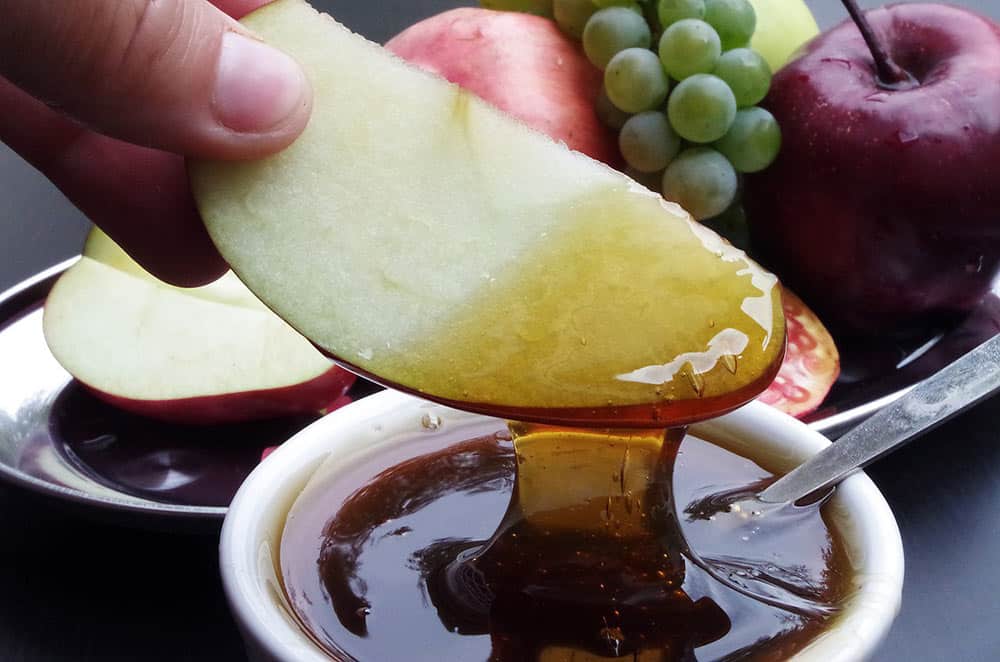
Honey is an amazing source of sustained energy for kids. They can dip apple slices in raw honey for a nutritious snack
#5: Builds the Immune System
Everyone wants to stay well, which means having a strong immune system that fights off disease, colds, flu and a host of other health issues.
Honey helps to stimulate the production of immune cells in the body and with more and stronger immune cells, it’s easier to stay healthy. Raw honey also contains an immune-boosting, probiotic bacteria to keep us healthy. For an extra punch of immune-building activity add ginger and lemon to your honey tea.
Types of Honey: Raw, Processed or Certified Organic
Raw or Unprocessed Honey
This is honey that comes right from the beehive. It is unheated, unpasteurized and unprocessed so that all the vitamins, minerals and enzymes are intact (enzymes are important for digestion). It tends to be thicker, cloudier, and is brimming with healthy goodness!
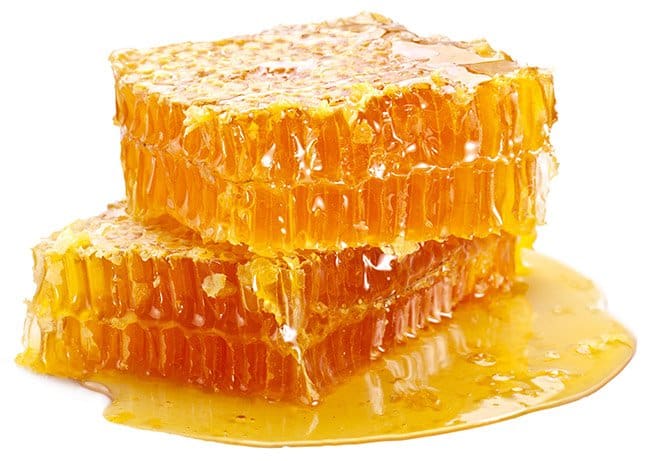
There are many types of honey: raw (unheated), pasteurized (heated to 150+ degrees). If you want honey with all the vitamins and minerals intact, opt for raw honey.
Commercial or Pasteurized Honey
This is honey that has been heated to at least 150 degrees Fahrenheit. It is thinner in consistency and pretty much 100% of the nutrients are destroyed in the heating process. Microscopic particles and the pollen so important to the nutrient-dense honey are destroyed leaving behind a thin, watery substance. This is most of the honey found in grocery stores and 76% of it is considered “fake,” because it’s not pure honey and other substances (like high fructose corn syrup) have been added.
Certified Organic Honey
This kind of honey has a lot of gray areas. First, honey can be certified organic by the US government, but they have no regulations to define organic honey. And, they do not inspect for organic honey.
However, there are independent certifying agencies in the US that certify for organic honey, but it’s expensive and requires a lot of research and careful documentation about the bees such as:
- where the bees go to pollinate
- where they live
- what the beekeeper feeds them
- how they are treated for parasites, etc.
If you are at all worried about the risk of botulism, pollen issues, pesticide or other chemicals, stick with certified organic honey.
My suggestion: if you have access to a beekeeper, I would purchase my honey from him/her.
Nutritional Value of Honey: 7 Different Kinds of Honey
Believe it or not, there are over 300 types of honey and each type is good for a different ailment. What determines the taste, the look and even the smell of honey depends on the nectar source of the honeybee. Here are seven interesting kinds of honey and their nutritional value:
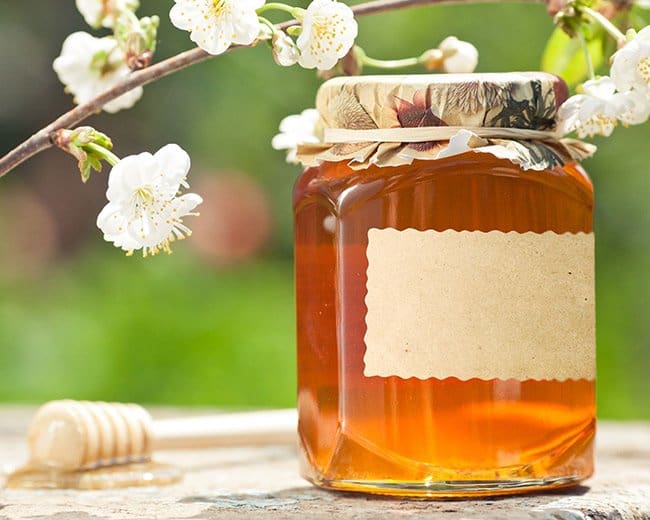
There are over 300 varieties of honey found in the world. And every honey helps and protects the body from disease, etc. Add different types of honey to your children’s diets for the best health result!
#1 Clover Honey
There is more clover honey in the United States than any other. It can:
- Heal Wounds
- Control liver issues
- Regulate cholesterol
- Treat burns
- Help to eliminate coughing (especially with children)
#2 Manuka Honey
Is made primarily in New Zealand and is good for the stomach and intestines and protects against the formation of gastric ulcers, 12-duodenal ulcers, and gastric cancer.
#3 Alfalfa Honey
You can find this honey throughout the United States and Canada. It helps with cardio issues and has anti-inflammatory, antioxidant and antibacterial properties
#4 Avocado Honey
This honey is from California avocado blossoms. It is loaded with vitamins and minerals and can be used to slather on burns.
#5 Buckwheat Honey
This dark honey is produced in the Eastern United States and is filled with antioxidants. Plus, it has more antibiotic characteristics that even Manuka honey! It’s loaded with lots of vitamins and minerals (all bioavailable because it’s a natural source) and important enzymes to help aid in digestion.
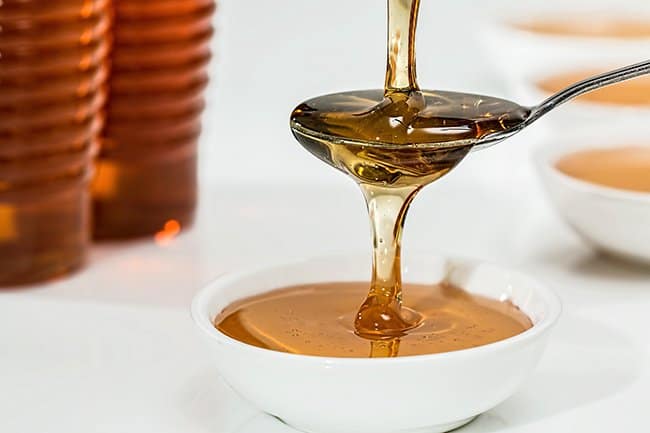
Buckwheat honey is amazing in that it acts as an antibiotic to heal the body. It’s loaded with vitamins and minerals for optimum health
#6 Blueberry Honey
Blueberries are considered one of the healthiest fruits on the market. They help with night vision, memory, aging and they are the greatest anti-cancer of any fruit. And, honey made from the white flowers of the blueberry bush is equally as healthy and has some of the highest antibacterial antioxidants. It’s produced in “blueberry” country: New England and Michigan
#7 Eucalyptus Honey
Like the eucalyptus plant, there are many different varieties of this honey from California.
Have you ever used essential-grade eucalyptus oil? It helps with a host of health challenges and so does the honey. Take at least 1 teaspoon each day to protect your body. It’s:
- Antimicrobial
- Antibacterial
- Antifungal
- Antiaging
- Anti-inflammatory
- Helps with acne
- Can be used as an insect repellent
- Helps with respiratory, sinus, and bladder infections.
Because of the benefits of honey, try incorporating it into your family’s diet–on your oatmeal, your toast, or substitute honey when cooking. Try different kinds of honey and eat at least 1 tablespoon a day for better health.
This blog, “Benefits of Honey” is part of my “Tidbits of Wisdom for Parents” YouTube video series. To access the video about the benefits of honey, click here.
You can access the 2-minute video here
Do you have a favorite recipe that you use with honey? What is your favorite kind of honey? Please comment in the section below.
Want to remember this post? Post, “22 Fascinating Benefits of Honey That Will Make You Smile” to your favorite Pinterest Board!
FAQ’s
Is a spoonful of honey a day good for you?
Yes. Depending on the kind of honey, one spoonful can help with cardio issues, ulcers, improve the gastrointestinal tract, and act as an anti-inflammatory, antioxidant and antibacterial.
Is eating honey good for you?
Yes. Honey is considered liquid gold because it contains important vitamins, minerals, and enzymes that help with digestion and phytochemicals that protect us against disease. Honey also helps with night vision, memory, aging, may even ward off cancer and more.
What are the health benefits of honey?
The benefits of honey are many. Studies show it’s good for your teeth; helps to heal wounds quickly; gives energy without caffeine; helps children with coughs; builds the immune system and much more.
What are the side-effects of eating honey?
Adults don’t have issues eating honey, but it should not be given to children under the age of two. Honey can have a bacterium called Clostridium botulism which can cause infant botulism and can be fatal. Also, before giving honey to a child check for a pollen allergy. Raw honey contains traces of pollen which may cause issues with your child’s digestive system. It doesn’t happen often, but there is a possibility.
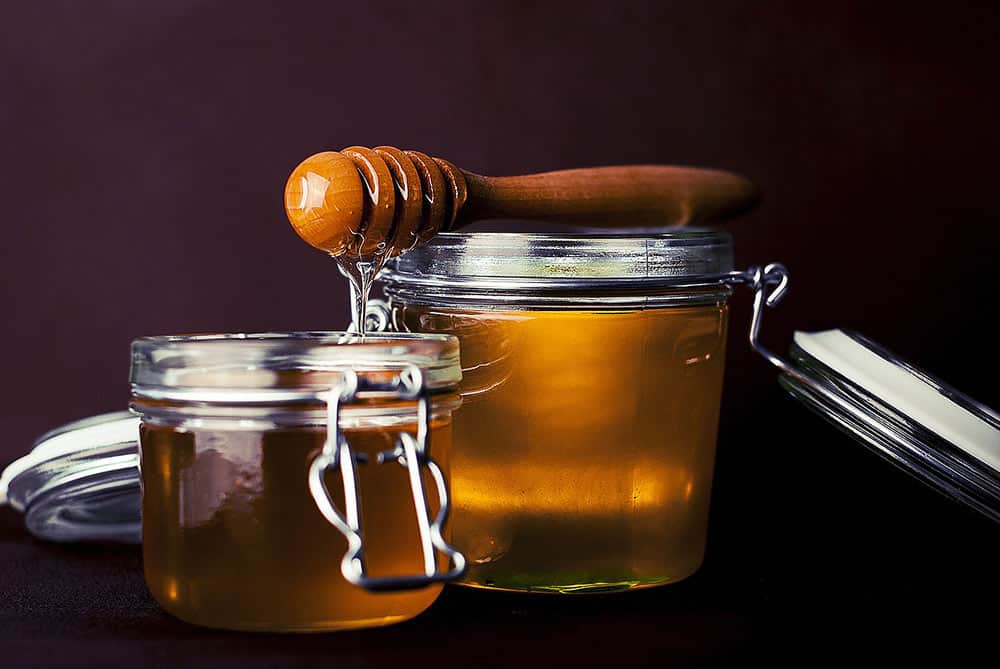
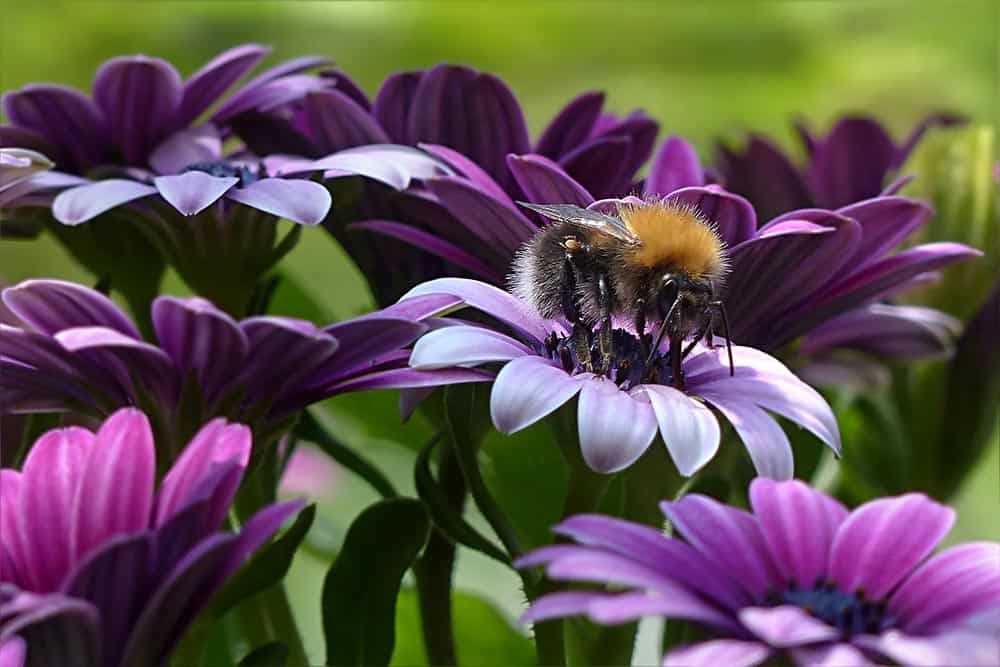
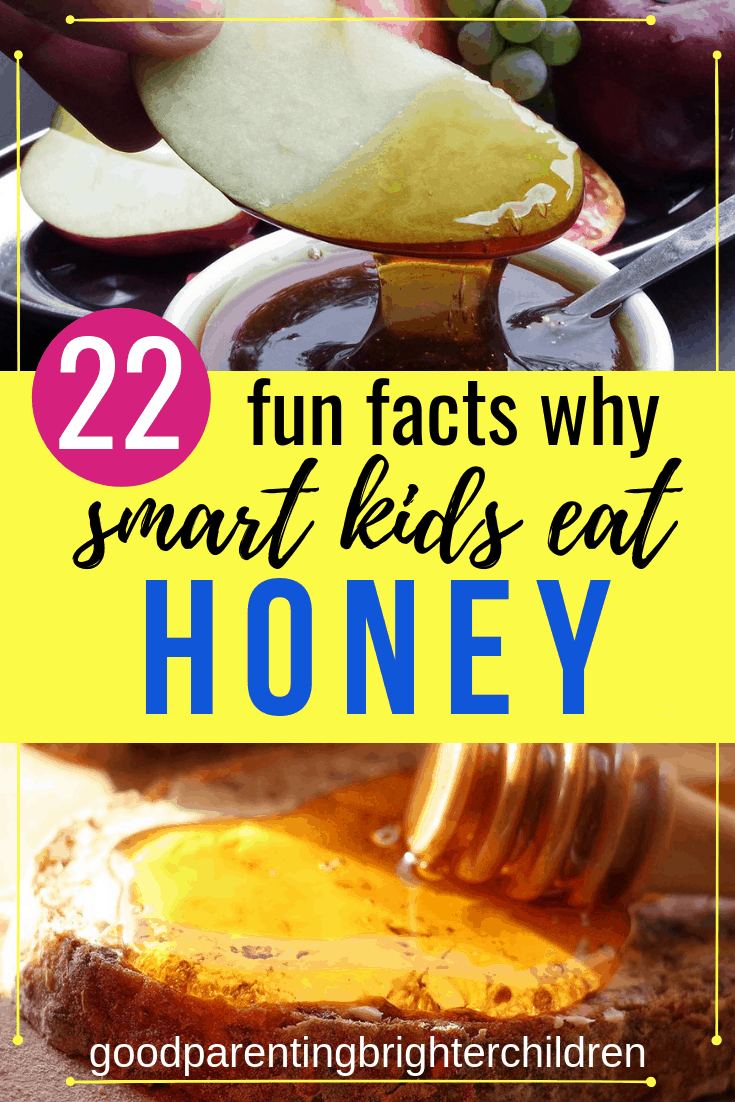


I had no idea that honey can be an anti-inflammatory to swelling as well as something that can take care of germs to clear infections. I am also intrigued that natural honey can actually protect against tooth decay. My uncle is a beekeeper, but he lives out of range for us to conveniently visit him and purchase his honey on a regular basis. With these advantages, we will be purchasing more honey than we have in the past, so we will look for a food supplier that carries natural honey.
Thank you so much for your comments! Can you purchase a large amount of honey from your uncle? When our kids were young, I had different sources to purchase honey in 12-pound containers–I got it that way. These were places out of state so I wanted to get as much as I could in one visit. And, as you know, when you go right to the beekeeper–you are able to purchase it raw. And honey doesn’t go bad–it lasts forever!
Thank you for explaining that honey can help with boosting your immune system. My husband and I have been wondering what we could add to our diet that could help us during flu season and especially during this pandemic. I’ll be sure to mention this to him and see if he would like to start adding some raw honey to our teas and other foods.
Thank you, Olivia, for your comments. Yes, honey is amazing for building the immune system. I recently purchased Manuka honey for that very reason. I’m taking 1 T per day–have you ever tried it? It’s not as sweet as clover honey, but like you, I’m looking for anything to help my immune system. Stay well!
It is great to know that honey helps to strengthen immune systems. I want my family to be as healthy as possible. I will definitely look into purchasing honey for us to eat.
Honey is amazing! If you can–look into purchasing raw honey–you will get the added benefits of all the necessary enzymes important for digestion!
thanks for post .I use a lot of natural honey and it has many benefits for my body
WOW! I feel as though I have just completed a college course about bees and HONEY! I appreciate all of the info you have shared. I grew up eating toast with peanut butter and honey. Loved it, as did my dad. Of all the honey I have tried so far, my favorite is clover.
Now I realizeI that I need to be more careful in which honey I buy. Thanks for your information! Loved this blog!
Thank you, Cheryl! Glad the blog was beneficial. Like you, my favorite honey is clover honey–and I also like orange honey. It’s interesting that we get these different varieties of honey depending on what plants and flowers the bees pollinate. Have you ever tried Manuka honey? Expensive but amazing! Again–thanks for sharing!
Amazing! Who knew honey had so many benefits?! I must admit I am guilty of buying store-bought honey to keep in my home. How sad to know that there is zero nutritional value in it at all. Here in Florida, we have a Farmers Market available to us year-round where I know for a fact that honey is sold. I will definitely be buying from these booths from now. We love honey in our family so we might as well get the health benefits you’ve explained in this post when consuming it. Thank you, Sharlene!
As always Tiffany–thank you for your support! One of my favorite honey’s is Manuka honey–from New Zealand. Taste-wise, it’s not my favorite, but even just 1 tablespoon each day is amazing for energy. I know that Zach has a busy schedule–you may want him to try taking 1 T per day. Some of my sons swear by it for energy. Try it and let me know…
Hi Sharlene,
Your “HONEY” topic is very timely. My adult daughter has been quite ill for a few years, and, although she is able to work outside the home, her allergies have caused several emergency trips to the hospital, where she spends hours in either an operational procedure, or hooked up to a blood cleaning apparatus so that she can breathe and stay alive.
That said, she is the person who told me about Manuka Honey. We buy and store it because it seems to have the curative powers that counteract her extreme sensitivity (allergy) to several adverse-producing plants in our area.
Thank you for sharing the story of Honey. Your topics each week are valuable to parents of any age!
Wow! A great testimonial for Manuka honey! I forgot to say in the blog–Costco is selling a large container of Manuka honey for $30.00–and most that I’ve priced are $78 to $100 for the same size jar. How much does she take each day? I take 1 tablespoon–but I have family members (with allergies) that take more. What’s interesting is that supposedly buckwheat honey is supposed to be even stronger than Manuka–have you heard that? Thanks so much for sharing!
Sharlene, some pharmacists carry Medi-Honey. It comes in a tube. Years ago when I was going to the Wound Care Clinic, they used it on my toe that had sores that would not heal. It really made a difference! I was shocked at first, that I was in a hospital where they had access to all kinds of healing salves, but they chose to use honey. But I soon became a believer!
Oh my gosh, Mary–this is an amazing story! It’s amazing because the medical community actually recognized something powerful for healing that is found in nature! I’m glad you told me about the honey-in-a-tube. I’ve read a lot of reports about antiseptic honey and how its produced but just never took the time to actually purchase some. Was it available over the counter? or did you have to have a prescription for it? Thanks for sharing–fabulous story!